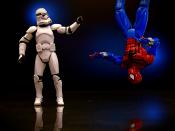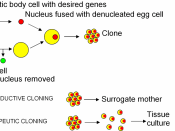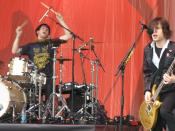In 1997, medical history was made when Dr. Ian Wilmut successfully cloned the first sheep, named Dolly. He used a variant technique of nuclear somatic fusion to split an adult cell creating an identical double. Since then, the cloning of mammals has come a long way. We are able to clone healthy, disease-free animals used for meats, donor organs and even to help preserve endangered mammals. With this technology, we can revolutionize the way we live.
Embryo splitting is used by farmers and livestock breeders, which allows them to twin their best animals for better production. In this process, breeders could even produce animals that are disease resistant. Michael West, CEO of Advanced Cell Technology even says, "Scientist are unanimous that cloned animals are indeed safe" and "cloning select cattle can promote strong, disease-free genes in the clones' progeny." This would be an enormous advantage for meat companies and human health.
This isn't the only way cloned animals could benefit human health; cloned animals could also be bred to provide organs for sick transplant patients. In breeding cloned animals, we can pump human DNA of the patient in the clone to provide stronger and better organs. "If the cells come from somewhere in the patient, then there is a vastly reduced chance of rejection of the organs" says Barry Evans, author of What is Mammalian Cloning and Why It May Be Important. Cloning mammals for organs would save thousands of lives and would provide a cheaper alternative for those who cannot afford human organs.
The cloning of animals could also take many creatures off the endangered species list. "This broad resource would allow us to use the powerful tools of genetic analysis that are available now and in the future to avoid extinctions," Dr Oliver Ryder from the Zoological Society...


